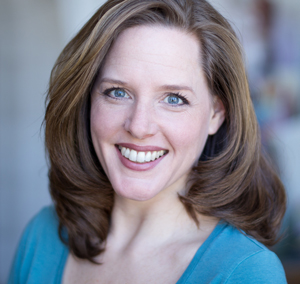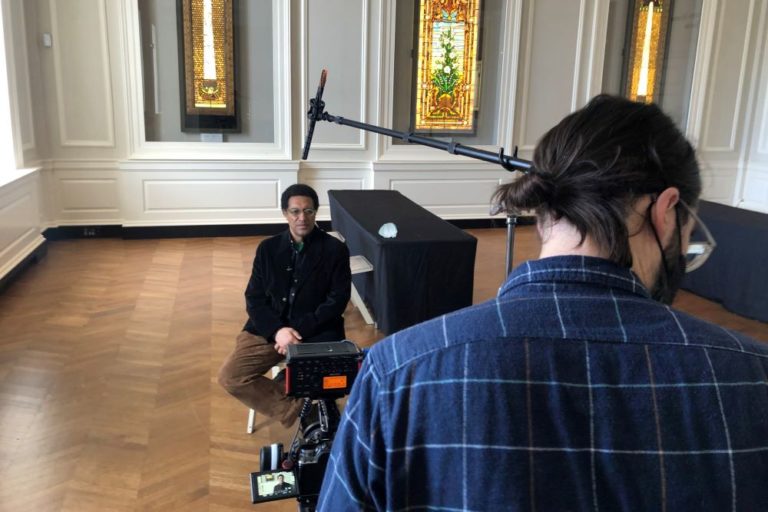
Once considered just for the blind, audiobooks are the fastest-growing format in the book business today, giving the acting field a new way of expressing itself.

Finding a place in this billion-dollar industry are Christina Traister, Associate Professor of Acting and Movement at MSU, and Emily Sutton-Smith, who received an M.F.A. in Acting from MSU in 2013. They both work as audiobook narrators for Brilliance Audio, one of the largest audiobook companies in the country.
“It’s such a creative job, because you have to be able to create a world for your listeners with only your voice,” Traister said. “You don’t have the additional aid of set locations, costumes, movement, or even facial expressions. You have to convey emotion and environment with only your imagination conveyed through the instrument of your voice, from subtle nuance to extreme expression.”
For Sutton-Smith, audiobook narration is about more than just another way to earn money.

“Storytelling is something that is very critical in terms of our society. It opens people’s hearts and minds, and gives access to understanding and empathy,” Sutton-Smith said. “To me, storytelling is one of the most important things that we can do as human beings for each other, and I love this job because it gives me the opportunity to do that.”
The hardest part of the narration process, according to Traister and Sutton-Smith, is switching between two characters or between a character and narration.
“Storytelling is something that is very critical in terms of our society.”
Emily Sutton-Smith
“An audiobook narrator needs to discover how to translate things like crying into a vocal quality. However, it can’t be overdone because the next person that speaks in the book needs to not be crying. It’s difficult to find a balance,” Sutton-Smith said.
Though it may be difficult, Traister and Sutton-Smith agree that the ability to narrate audiobooks is extremely beneficial to any theatre student.
“I find that this type of work really helps to keep the actor brain in shape,” Traister said. “What I love about audiobook narrating is that I am frequently cast in roles that I would never normally portray. For instance, in a single book, I can be both a tough female FBI agent and a southern Cajun male chef, so you constantly have to shift your characterizations.”
“I find that this type of work really helps to keep the actor brain in shape.”
Christina Traister
Traister found this skill to be so useful to theatre students that three years ago she became one of the first to create curriculum for an audiobook class. Traister taught her students the basics of audiobook narration, and the class culminated in each student using Traister’s personal recording studio to create an audition demo.
“A third of the class received callbacks at studios,” Traister said, “and from those callbacks, some of them landed audiobook contracts, so they were immediately able to book work from that class.”
Though the class hasn’t been offered in a few years, it will return again during the Fall 2017 semester.
“I’m glad to hear that the class is coming back, because although it seems like it, audiobook reading is not a simple skill,” Sutton-Smith said. “There’s unique storytelling and acting elements that are required; it’s not as simple as just being able to read a book.”
Because novels with young-adult narrators are so popular, audiobook narrators with young voices are in high demand. Traister hopes her class will prepare students for these opportunities.
“If you’re an actor and you can be cast in various forms of artistic work in order to support yourself, then that’s obviously a great thing. It puts your training into immediate use,” Traister said. “If I’m providing my students with useful training in this class that can immediately be translated into employable skills upon graduation, then that’s an amazing scenario.”
Written by Alexandria Drzazgowski, Professional Writing Major


